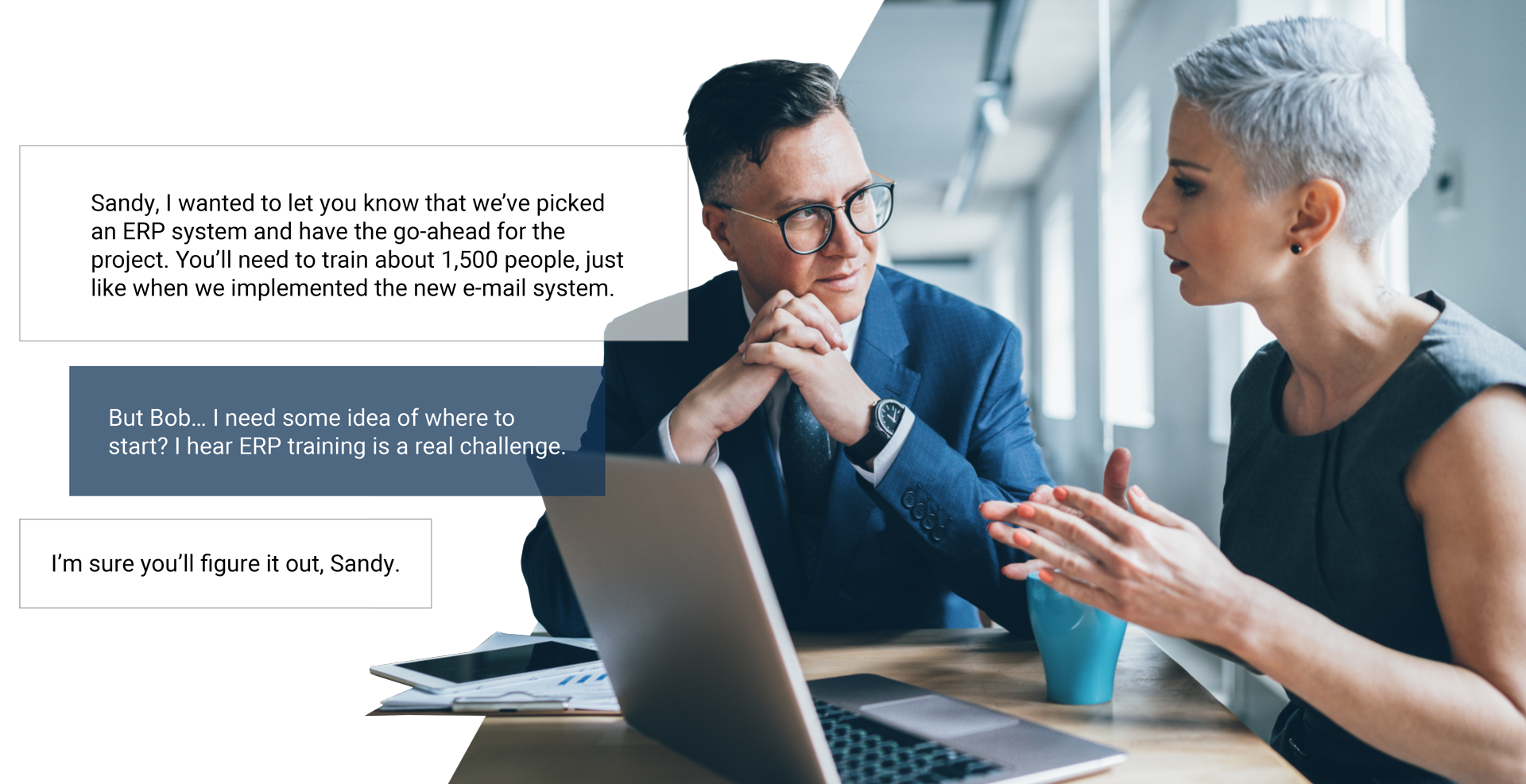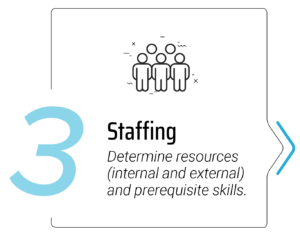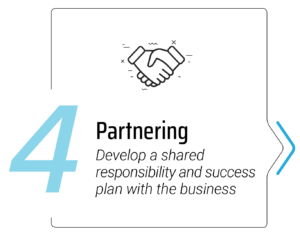
28 May Planning Your ERP Training Project
Picture this exchange between a CIO and a Training Manager…

Sandy’s instincts are right on. ERP training is a challenge, and it’s nothing like implementing a new email system with a one-size-fits-all training approach. Instead, ERP training looks like a giant puzzle. Hundreds of discrete business process pieces, each related to a specific group of users, need to seamlessly fit together. For example, processes within Finance vary and are certainly different than processes in Sales. But sometimes a group in Finance must work jointly with a group in Sales. And what about Distribution, Manufacturing, and HR? The list seems endless, and the relationships are obviously intricate. Lose a couple of puzzle pieces and you miss the picture.
ERP training is a challenge, and can be a fragile process. It’s nothing like implementing a new e-mail system with a one-size-fits-all training approach.
Where should Sandy begin? We suggest that she start thinking about her own process and project…the training initiative. In that other great puzzle, the ERP project, she’s responsible for a whole corner of the picture. And she holds in her hands a handful of puzzle pieces she needs to snap together.
Despite what you may have heard about ERP training projects, they are survivable if you provide the necessary time and resources for training on the ERP system. They are also long, large, multi-disciplinary, and require a learning curve. Some would say that they are career-changing, if not life-altering, and will make your hair go gray. We wouldn’t want that to happen to Sandy.
So here are the seven major puzzle pieces with which Sandy needs to work:







Planning your ERP Training Project
Planning for ERP training is a multi-phased process and requires a detailed pre-plan approach. The extent and detail of the project plan grows over several months as you uncover new facts and come to fully understand the scope of the initiative.
There’s no mystery to planning. You need to know when to begin, the level of effort you need to apply, and the plan deliverables you need to develop. As the ERP project evolves, you can adjust and add detail to your plan and begin to schedule the work to be done.
When to Begin
Training planning normally begins during “Blueprinting”, the ERP project phase in which the “to-be”, or future business processes are being designed.
This is an excellent time to begin assessing organizational readiness and the current levels of end-user skill and knowledge in relation to those that will be needed in the new environment.
Level of Effort
The effort needed to perform the training assessment varies widely and depends on project scope and the number of people affected. A knowledgeable and well connected inside resource can probably survey the environment within 40 to 80 hours. However, a full-scale assessment may take anywhere from 160-480 hours.
The ideal arrangement for a full-scale assessment involves an in-house resource paired with an experienced ERP training consultant. The in-house resource quickly navigates the organization while the consultant constructs the structure for the assessment work.
The organization needs to allocate time for the assessment. Interviews of approximately one hour must be conducted with each end-user group and its manager, the Executive team, selected ERP project team members, and support departments such as Human Resources, Information Technology, and Training.
Plan Deliverables
An ERP training consultant can help construct questions and strategies for conducting your assessment. Focus on developing the following list of plan deliverables:
Prerequisite end user education plan.
Outline the business skills and knowledge end users must obtain before ERP training begins along with a timeline for skill acquisition.
Training staffing plan.
Define the talent mix and resources required for the ERP training project. Identify resources committed and needed for analysis, design, development, delivery, and administration of training. Point out gaps between requirements and available talent, and identify strategies for obtaining or developing resources.
Training delivery plan.
Answer basic questions about how the curriculum is going to be developed and delivered. Include an overview of tools needed, logistic challenges, technical infrastructure weaknesses, training system environment, and delivery mechanisms. Also provide an initial timeline for rollout of education and training.
Curriculum matrix.
This is easily the most useful reference for training developers, and it will grow into a huge, complex document over the life of the project. Simply put, the matrix lists tasks to be trained and information for each job role in the new environment. In its final form, it will not only guide development, but also provide a completion checklist. Another useful document, using the curriculum matrix as its basis, will map end users in each department to their appropriate job roles and training and give a departmental and end user snapshot of the training needed.
Budget.
Estimate the cost of internal and external resources for development and delivery. Also address the costs to the organization for end-user training. The budget may also include strategies for recovering the costs of training.
Together, these items make up your training plan, but each piece will have different audiences. For example, project management will want to understand the entire plan, and business departments will typically be concerned only with those pieces that apply directly to their end-users. We suggest that you use a modular arrangement for the deliverables, so that you can mix and match the pieces requested by each audience.
Remember that these are living documents. Not all of the information you’ll need will be both firm and available during your initial assessment. As the project progresses past the Blueprint stage, expect changes and additions. But don’t fret. With a solid base, a little patience, and a good attitude, you’ll sail right through.
Source: Five Tips for a Successful Enterprise Resource Planning (ERP) Training Program, Michael, Thomas, Learning Solutions Magazine, November 29, 2011


